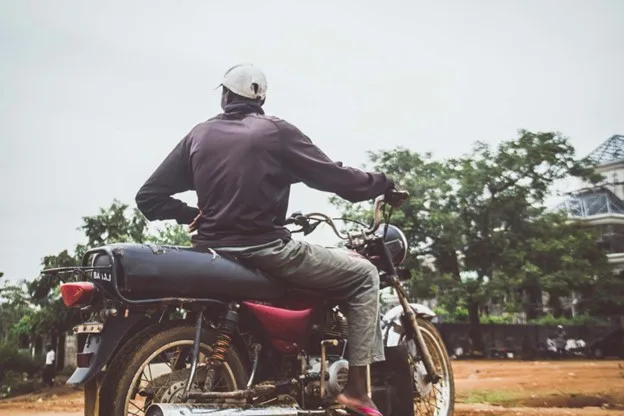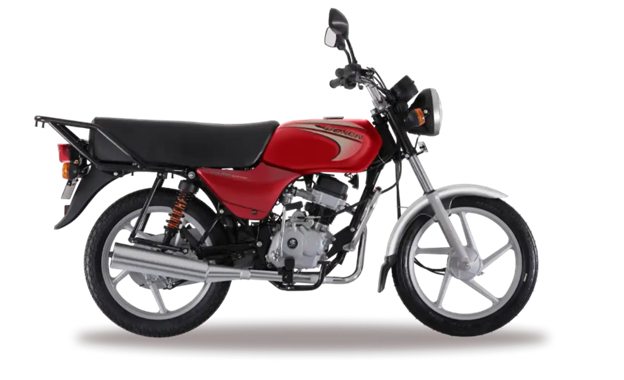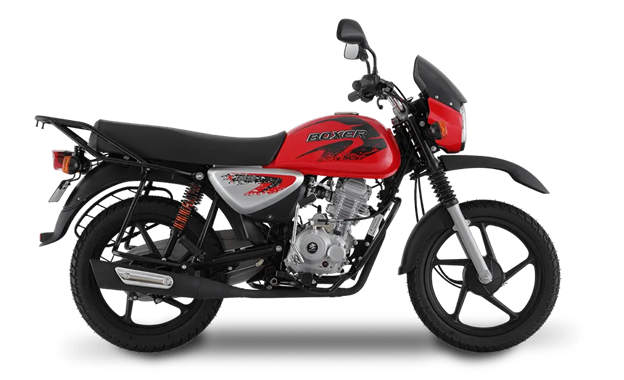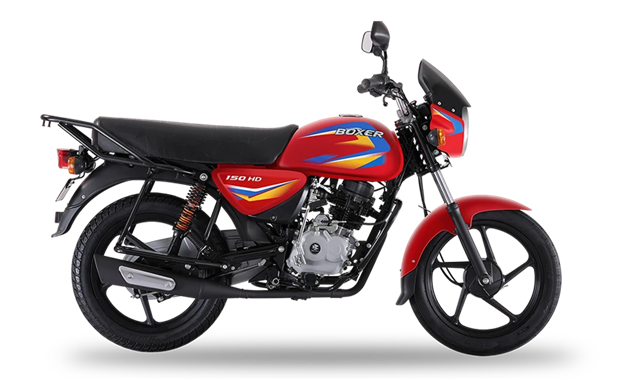
Choose your Country

Choose your Country
Last Update: July 22 2025

Talk to any boda rider, delivery agent, or fleet manager across Kenya, and Bajaj is likely the name you’ll hear first. It’s not hype. It’s hard-earned trust.
In a crowded field of motorcycle brands, Bajaj has emerged as the leading choice for those who see their bike as a livelihood, not a luxury.
Here’s a no-fluff breakdown of why Bajaj dominates the motorbikes in Kenya market.
Our local riding scene is no place for delicate machines. Roads can flip from tarmac to potholes in minutes. Riders need motorbikes that take the punishment and come back for more.
So, what counts?
That’s where Bajaj edges ahead—bike after bike, ride after ride.
And in a market that sees over 250,000 new units registered annually, according to KNBS, the competition is fierce. Bajaj’s ability to scale with quality, price, and support infrastructure gives it a lasting edge.
Working across challenging tracks every day, Bajaj no longer remains just a bike brand. It has now become part of Kenya’s economic fabric—powering small shops, enabling family incomes, and connecting people across terrain and time.
Whether it’s the Boxer 150 X or Boxer 125 HD, Bajaj bikes are known for shrugging off tough roads and heavy loads.
Compare this with many competitors, Chinese imports, or even some well-known Japanese brands, and you’ll notice the difference:
If you ride daily, that toughness turns into real savings.
Fleet operators and long-haul delivery services also report that Bajaj bikes last longer under stress. That means fewer replacements, fewer panic repairs, and better margins.
Many mechanics also agree that Bajaj bikes need less frequent fixing, and when they do, the work is straightforward. That’s time saved and more income retained.
Some brands offer a one-size-fits-all bike. Bajaj doesn’t. Let’s see what this renowned, trusted Indian motorcycle brand has to offer to the everyday Kenyan riders!

Perfect for light commercial use or entry-level riders. Affordable, durable, and extremely fuel-efficient.

A great middleweight ride for mixed city and off-road routes.

For riders who haul heavy or do long shifts daily. Built for endurance.
Every model speaks directly to real rider needs, not just a spec sheet.
Each variant is backed by an understanding of Kenya's varied terrains, from muddy highlands to sandy coasts, and fine-tuned to perform without fail.
The wide selection also makes it easy for fleet operators to standardise on Bajaj while matching bikes to route needs.
Let’s face it. Owning a bike in Kenya is a business. Whether it’s boda or deliveries, the goal eventually becomes the profit generated.
Bajaj bikes are:
When compared to other bikes Kenya offers in the same category, Bajaj always scores high on the cost-to-performance ratio.
And the new bike in Kenya pricing from Bajaj? It’s fair, transparent, and backed by a strong warranty.
What’s more: routine wear-and-tear items like brakes, filters, and clutches are affordable and widely stocked.
This cost advantage isn’t short-term either. It shows up month after month, allowing riders to grow their savings or reinvest in expanding their transportation business.
Across online forums, mechanic garages, and town stages, riders consistently point to Bajaj’s reliability.
Stories from riders include 100,000 km-plus milestones, daily 200 km delivery runs, and even cross-country treks without breakdowns.
These aren’t rare cases, they’re the norm. It’s why Bajaj dominates word-of-mouth marketing across countries!
More importantly, this kind of reliability isn’t promised, it’s proven. It’s why riders who rely on their bikes for income keep coming back.
Many riders start with competitor brands and eventually make the switch. The reasons?
Bajaj fills those gaps without breaking the bank. For many, it’s not just a better ride. It’s a better income strategy.
Repeat purchases and rider referrals are proof of value. It’s no surprise that Bajaj has become the fleet standard for many logistics and parcel delivery firms in Kenya.
When every day counts, so does every shilling. That’s why more riders make the switch and stay switched.
One major pain with many Kenya motorcycle brands? Service. Either it’s too far, too costly, or parts are nowhere to be found.
Bajaj flips the script. With a wide service network and authorised dealerships countrywide, help is never far. Whether you’re in Nairobi, Kitale or Kilifi, there’s likely a certified mechanic or shop with Bajaj parts close by.
Add to that a growing mobile technician network, and routine servicing becomes accessible even in remote areas.
Bajaj riders also benefit from proactive service camps and spare part offers, making maintenance not only reliable but also budget-friendly.
From Kisii hills to Nairobi jam to Lamu sand tracks—Bajaj bikes get it done. They’re not made for showing off. They’re made for showing up.
If you’re looking for the best bike in Kenya that works as hard as you do, Bajaj Kenya has you covered.
Don’t settle for less. Contact us to bring home this ultimate income enabler!
1. Are Bajaj bikes reliable for rural use?
Yes. Bajaj bikes are specifically built to tackle challenging rural paths with a sturdy chassis and reliable suspension.
2. What’s the most popular Bajaj model in Kenya?
The Boxer 125 X and the Boxer 150 X are two widely favoured models in Kenya that are known for their balance of power and durability.
3. How do Bajaj running costs compare to others?
Since Bajaj bikes offer accessibility to genuine spare parts, authorised dealership, and after-sales assistance, their running costs eventually cost less than other imported brands.
4. Do Bajaj bikes retain value over time?
Yes. Bajaj’s strong resale value is one of its biggest strengths in the Kenyan second-hand market due to its long-running legacy.
One Bike, Many Jobs: How Boxer Supports Everything from Boda Boda to Agro-Deliveries
Know More
Powering Small Businesses: How Tuktuks are Driving Entrepreneurship in Nairobi and Western Kenya
Know More
The Backbone of the Rift Valley: How Motorcycles Empower Rural Kenya
Know More
5 Common Mistakes That Shorten Your Boxer’s Lifespan (And How to Avoid Them)
Know More
How the 5-Speed Gearbox Gives Boxer Riders a Real Edge in Kenya
Know More
From Shock Absorption to Frame Strength: A Deep Dive into Boxer 150 X’s Tough Build
Know More
Discovering the Significance of Three-Wheeler Tuk-tuks for Urban Accessibility in Kenya
Know More
Heavy-Duty Power for Heavy-Duty Tasks: Why the Bajaj Boxer 150 HD is a Game-Changer
Know More
How Bajaj Bikes Drive Economic Development in Kenya
Know More
Why Small Business Owners Trust the Boxer 125 HD
Know More
Maintaining Your Tuk-tuk in Kenya: Essential Tips for Longevity and Efficiency Across Regions
Know More
From 100cc to 150cc: How to Choose the Best Bajaj Boxer Range for You?
Know More
Why Tuktuks Are the Smartest Way to Deliver in Kenya’s Towns
Know More
Power That Pays Off: Why the Boxer 125 HD Is Your True Income Enabler
Know More
Understanding How the Bajaj Boxer Masters Challenging Conditions
Know More
Bajaj Boxer 100 HD ES: The Flexible Performer for Everyday Business
Know More
Mastering Your Bajaj Boxer: A Rider’s Guide to Enhanced Performance
Know More
Boxer HD Series Breakdown: Which Model Fits Your Hustle?
Know More
The Tuktuk Experience: Why Tuktuks Are Kenya’s Smartest Urban Transport Tool
Know More
The Only Bike You’ll Ever Need: How Bajaj Boxer Adapts to Any Job in Kenya
Know More
Boxer 100cc Series: The Smart Pick for Reliable, Everyday Power
Know More
Why the Boxer 125 Is the Smartest Bike for Kenya’s Boda Boda Business
Know More
Ride Rough, Stay Steady: Boxer’s Suspension System Explained
Know More
Mastering the Metropolis: Selecting the Right Motorbike for Urban Utilities
Know More
The Bajaj 150 X: The Perfect Load Carrier for Rough Roads and Long Rides
Know More
From Thika Roads to Maasai Mara Trails: Bajaj Motorcycles, Kenya's Reliable Workhorse
Know More
The Social Impact of Motorcycles in Western Kenya's Communities
Know More
Navigating Nairobi's Urban Pulse: Why Bajaj Motorcycles Are the City Rider's Choice
Know More
Why Every Delivery Rider in Town Should Be Eyeing the Boxer 125 HD
Know More
Buying a Motorcycle in Nairobi? Your Guide to Making a Smart Selection
Know More
Why the Bajaj Boxer Motorcycle is the Undisputed King of Tough Terrains
Know More
From Nairobi's Hustle to Rural Paths: The Bajaj Boxer, Kenya's Unsung Hero
Know More
Powering the Rift Valley: Why the Boxer 150cc is the Go-To for Kenyan Farmers and Traders
Know More
Which Bajaj Motorcycle is Right for Your Business in Kenya? A Comprehensive Buyer's Guide
Know More
Bajaj Three-Wheelers in Kenya: Driving Business Growth and Mobility
Know More
Fuel Efficiency and Durability: The Bajaj Advantage for Kenyan Riders
Know More
Maximising Your Boxer 150's Performance and Longevity: Essential Tips
Know More
Bajaj Boxer 125 vs. Competitors: A Head-to-Head Battle for the 125cc Crown
Know More
Second-Hand vs. Brand New Bikes in Kenya: Which One Should You Buy?
Know More
A Deep Dive into the Bajaj Boxer 100 HD ES Comfort Features
Know More
Why Every Smart Driver is Upgrading to the New Bajaj RE 4S Petrol
Know More
Built to Outlast the Daily Hustle: The New RE’s Frame, Finish, and Features
Know More
Ride-Hailing at Scale? Here’s Why the RE 4S is the Backbone You Need
Know More
5 Reasons Ride-Hailing Fleets Should Switch to the New Bajaj RE 4S
Know More
5 Reasons Why Boxer Is the Best Mototaxi Bike in Kenya
Know More
What’s the Ideal Boxer Model for You? A Buyer’s Guide
Know More
A Beginner’s Guide to Boxer Motorcycle Servicing
Know More
Your First Bike? Here’s Why Boxer Is the Right Choice
Know More
Types of Motorbikes in Kenya: A Complete Guide for Buyers
Know More
How to Maintain Your Boxer Motorbike for Long-Term Use
Know More
The Economic Impact of Boxer Bikes on Village Mobility
Know More
What Makes Boxer Bikes Ideal for Agricultural Transport?
Know More
Boxer 100 Series: The Best Motorcycles for Light Commercial Use
Know More
Best Boxer Bike in Kenya for Rural Transport in 2025
Know More
Exploring the Durability of Boxer Bikes on Kenyan Roads
Know More
How Boxer Bikes Help Small Business Owners in Kenya
Know More
Why Boxer 100 HD Is the Most Fuel-Efficient Utility Bike
Know More
Why Boxer 100 HD ES Is Perfect for City and Village Use
Know More
Boxer 100 HD ES: Durability, Comfort, and Performance Combined
Know More
Maintenance Tips to Keep Your Bajaj Boxer 125 HD Running Strong
Know More
Why Mototaxi Drivers Prefer Boxer 100 KS
Know More
Choosing Between Boxer 100 KS and Boxer 100 HD: A Practical Guide
Know More
Same Spirit, Two Styles: Exploring the Boxer 100 KS and HD ES
Know More
The Boxer 100 KS: Affordable Mobility for First-Time Buyers
Know More
The Boxer 125 X: A Flexible Workhorse for All Terrains
Know More
How the Boxer 125 X Offers Flexibility for Small Businesses
Know More
How Boxer 150 HD Handles Load Like a Pro
Know More
Why the Boxer 150 HD Is a Status Symbol in Transport Circles
Know More
How Boxer 150 X Helps Mototaxi Operators Maximise Earnings
Know More
Top Features That Define the Boxer Motorcycle
Know More
The Champion of Rough Roads: Boxer 150 X Review
Know More
Why the Boxer 150 X Dominates Africa’s Toughest Terrains
Know More
How Boxer Bikes Are Powering Kenya’s Economy
Know More
Getting to Know the Heavy Duty Boxer 150cc Range: Features and Benefits
Know More
Bajaj Boxer for Heavy-Duty Tasks: Rugged, Reliable, and Ready to Roll
Know More
Boxer 150 HD: Built Tough for Long Routes and Heavy Loads
Know More
Boxer 150 HD Maintenance Tips for Rural Riders
Know More
Value Meets Reliability: Why Bajaj Bikes Are Perfect for Kenyan Roads
Know More
5 Reasons the Boxer 150 X Is Built for Boda Boda
Know More